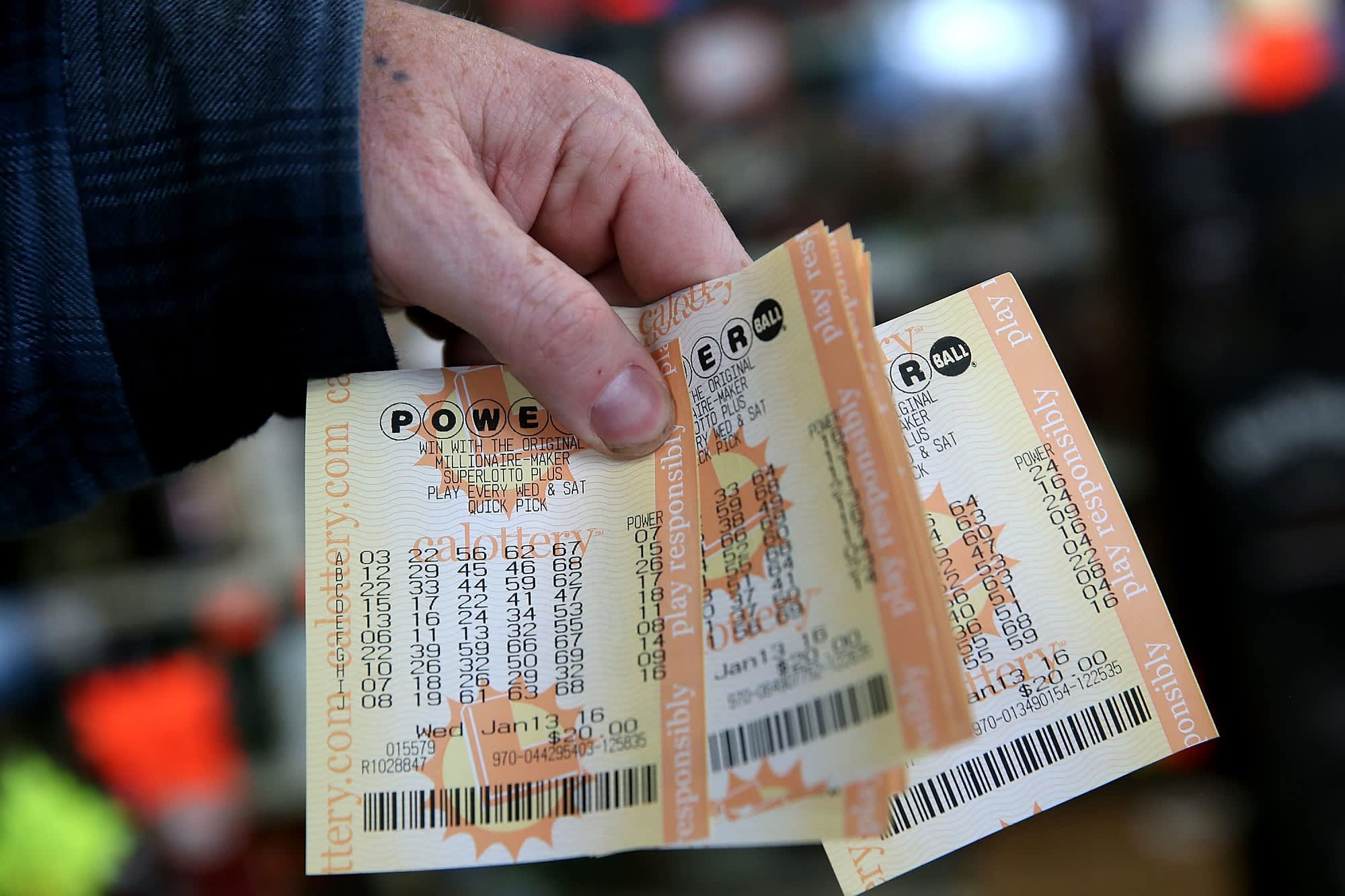If you beat the odds stacked against hitting the Powerball jackpot, there’s an estimated $277 million waiting for you in Saturday night’s drawing.
The top prize has been climbing for more than two months of twice weekly drawings with no ticket matching all six numbers. And while the chance of winning the jackpot is about 1 in 292 million, at some point, someone will get really lucky.
At the same time, though, experts say that winners typically discover that handling sudden wealth of that magnitude can be overwhelming. In other words, it’s not as simple as taking the check and going on with your life — it takes some preparation and adjustment.
Justin Sullivan | Getty Images
“The days between the drawing and the day you claim will be your last days of normalcy,” said Jason Kurland, a partner at Rivkin Radler, a law firm in Uniondale, New York.
“You want to have a clear head so you can get through a stressful but exciting time,” said Kurland, who specializes in helping lottery winners.
Here are some tips for protecting your windfall if you hit the jackpot in Saturday night’s Powerball drawing.
1. Protect your ticket
The standard advice from experts is to sign the back of the winning ticket so that if you are separated from it, your signature can help ensure you still get the prize.
“You want the ticket signed, because whoever signs it is the winner,” Kurland said.
However, he said, you should first make sure you know the rules for claiming your win in the state where you purchased the ticket. If you bought it in a place that requires the winner’s name to be announced, you might be able to claim it via a trust or other legal entity, thereby keeping your name out of the public eye.
“Just be sure you sign the back of the ticket correctly, and do it as soon as possible,” Kurland said.
2. Keep quiet
Your first urge might be to share your exciting news with, well, the world. However, the fewer people who know, the better.
This is the case even if you’ll be able to claim your prize anonymously.
“The last thing you need is people asking for handouts, or friends and family offering advice about how to claim the money,” Kurland said.
If you won’t be able to dodge publicity due to your state’s law, consider changing your phone number or living somewhere else temporarily to avoid media attention and sudden money requests from long-lost friends or relatives.
“I have a lot of clients plan trips the day their win is announced,” Kurland said. “Those first few days are when the press tries to find you, but it usually has died down after a week or so.”
More from Personal Finance:
Here’s how to lower your tax season stress level
This Social Security mistake could result in years of regret
Holiday debt could take years to pay off
3. Take a deep breath
While you might be eager to claim your winnings, experts say it’s best not to rush over to lottery headquarters the day you discover you’ve become one of the wealthiest people in the country.
Mega Millions winners get anywhere from three or six months to a year to claim their prize, depending on where the winning ticket was purchased. Be sure to take the time you need to prepare to claim your winnings.
That should include assembling a team of experienced professionals: an attorney, financial planner and tax advisor.
4. Consider the bottom line
Jackpot winners get to decide between taking an immediate lump sum or spreading out their winnings over three decades. Either way, the IRS will take 24% before the money reaches them.
For this $277 million jackpot, the cash option — which most winners go with — is $188.4 million. The 24% federal withholding would reduce that by $45.2 million to $143.2 million. However, because the top marginal rate is 37%, the winner should anticipate owing much more at tax time.
Additionally, state taxes typically are withheld or due. Those levies can range from zero to more than 8%, depending on where you live and where the ticket was purchased.
“Winners are surprised by how much is withheld in taxes from the initial payment, and then how much more is owed when they file their taxes the following year,” Kurland said.
There are ways to reduce the amount of winnings that gets taxed, although not many.
The charitably inclined can lower their taxable income by making a cash donation of up to 60% of their adjusted gross income and carry forward, up to five years, any excess amount.
Some lottery winners set up their own charitable foundation or similar option, such as a donor-advised fund, and donate a portion of their windfall to it.
